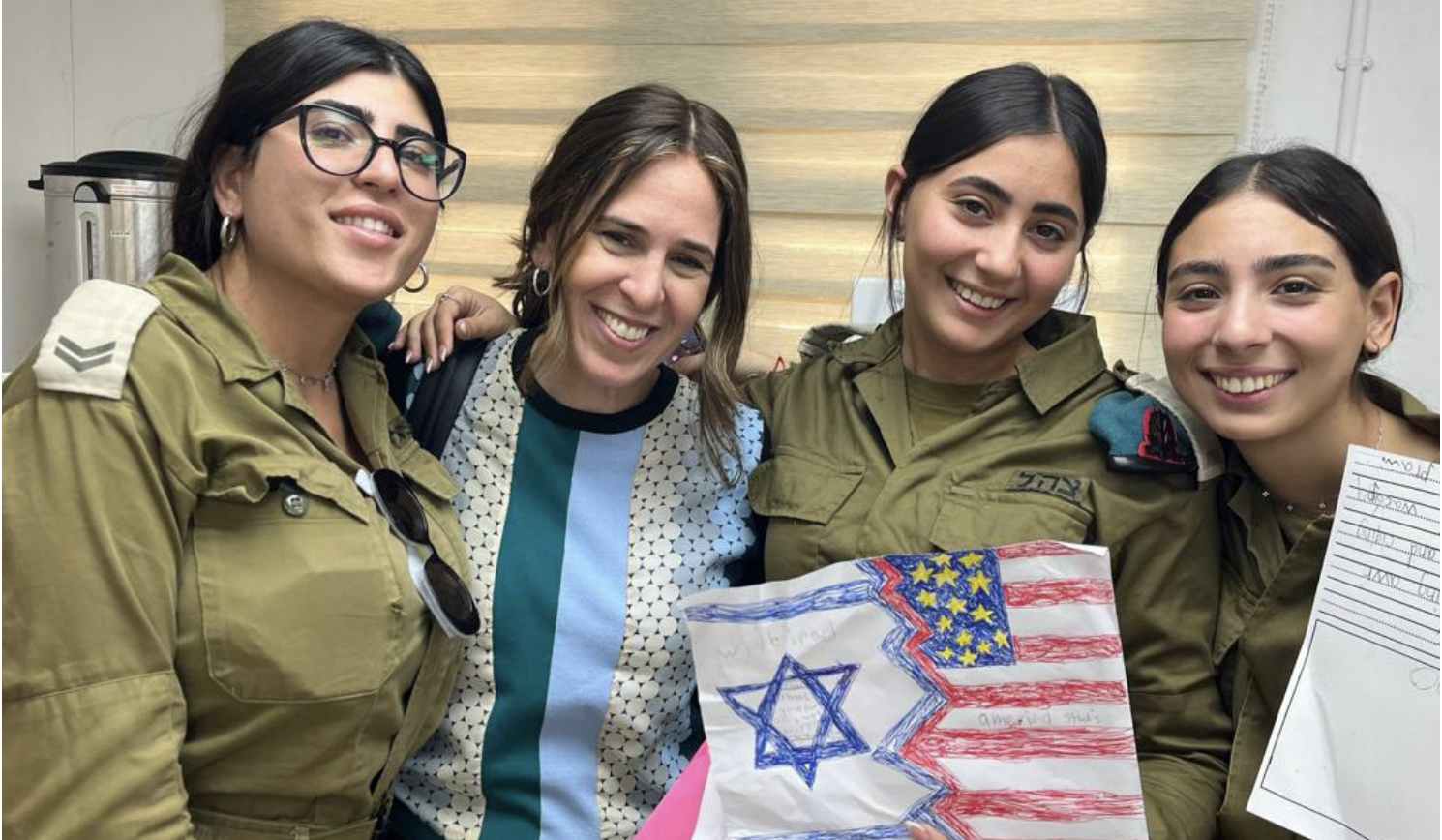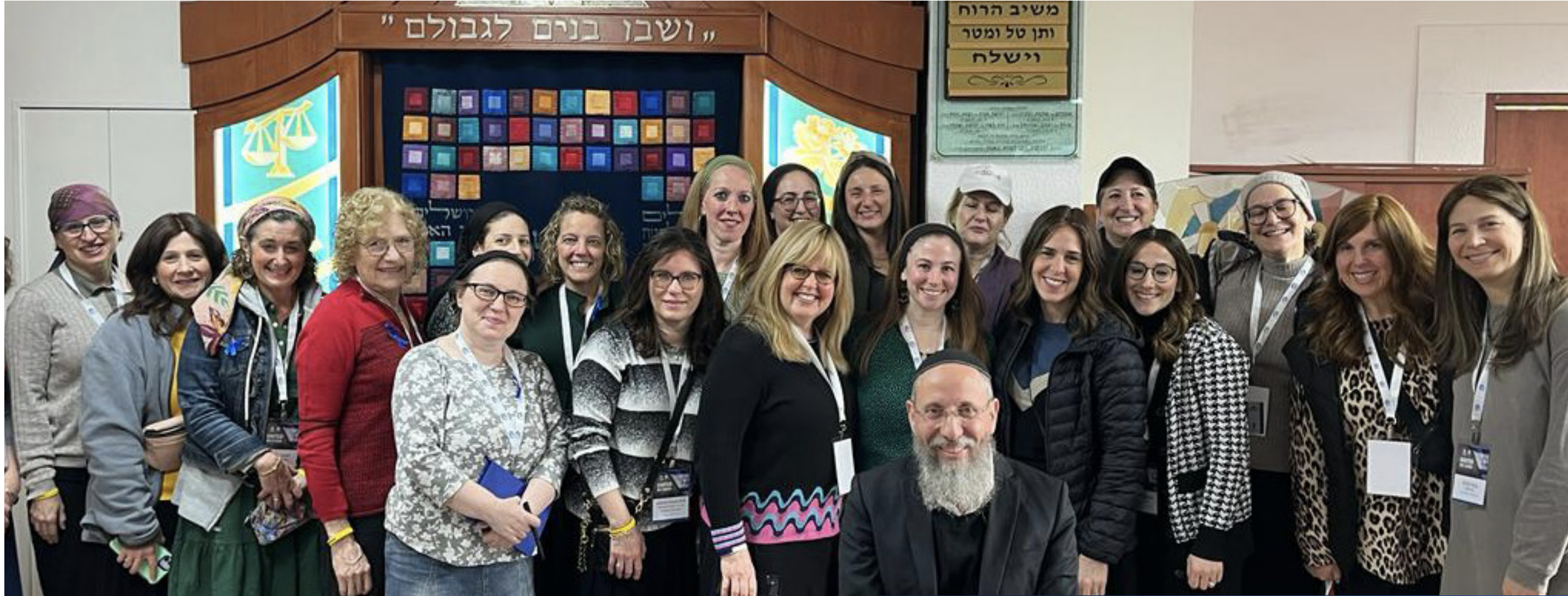



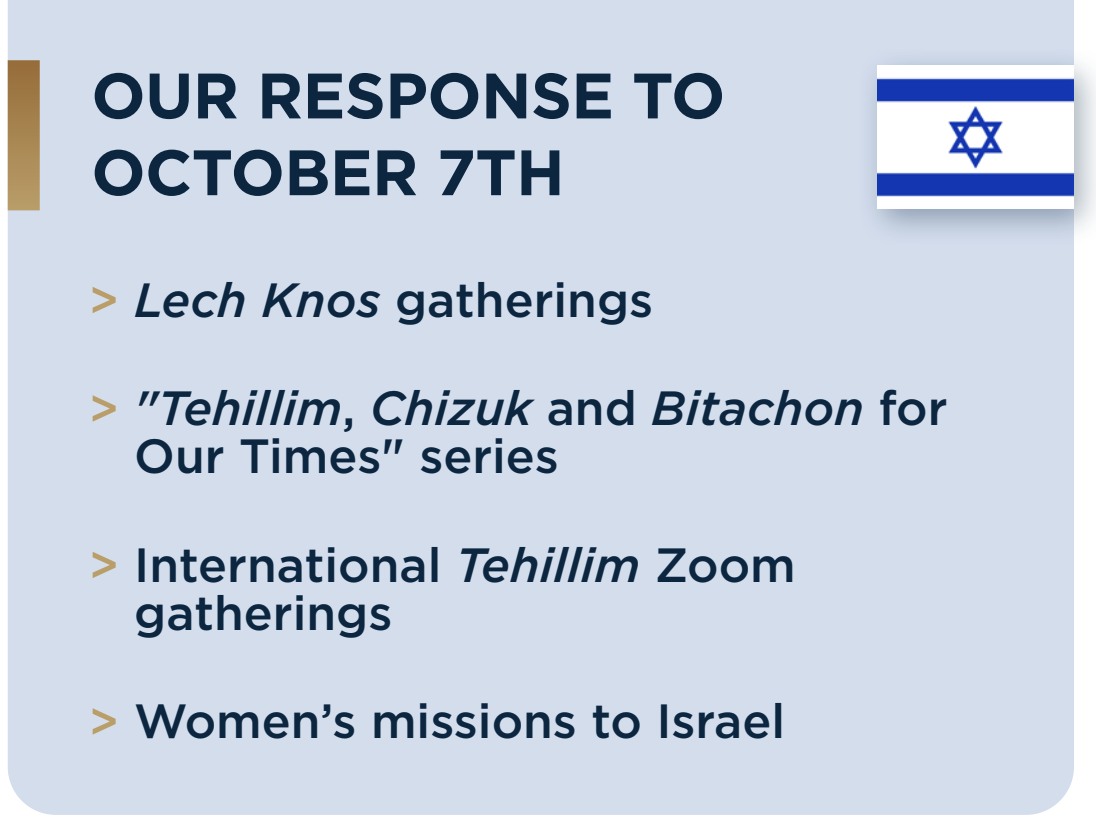
Our Torah programming reaches women of all ages and educational backgrounds.
Torat Imecha Nach Yomi, our flagship program, celebrated the completion of its second cycle in February 2024. More than 1,200 women finished the Nach learning cycle, nearly 400 attended in the siyum in Teaneck, N.J., and over 100 attended the siyum in Yerushalayim. Now well into its third cycle, the program’s audio podcast — delivered by talented female educators — reaches more than 15,000 each day. Other programs include Torat Imecha Parsha, a Rosh Chodesh video series and “Ideas and Inspiration” for the holidays, featuring virtual museum tours, historical insights and expert-led interactive programs.
July 2024 marked the fifth year of the Max and Yetty Monderer a"h ALIT Summer Beit Midrash. Nearly 400 women participated in this two-week virtual learning program, engaging in classes on mussar, Jewish history, medicine and chumash, Tehillim and other topics
The Women’s Initiative also publishes essay collections twice a year — before Aseret Yemei Teshuvah and Pesach — that reach thousands of readers. And our newest program, Torat Imecha Halacha, offers concise and practical halachic insights on a range of topics.
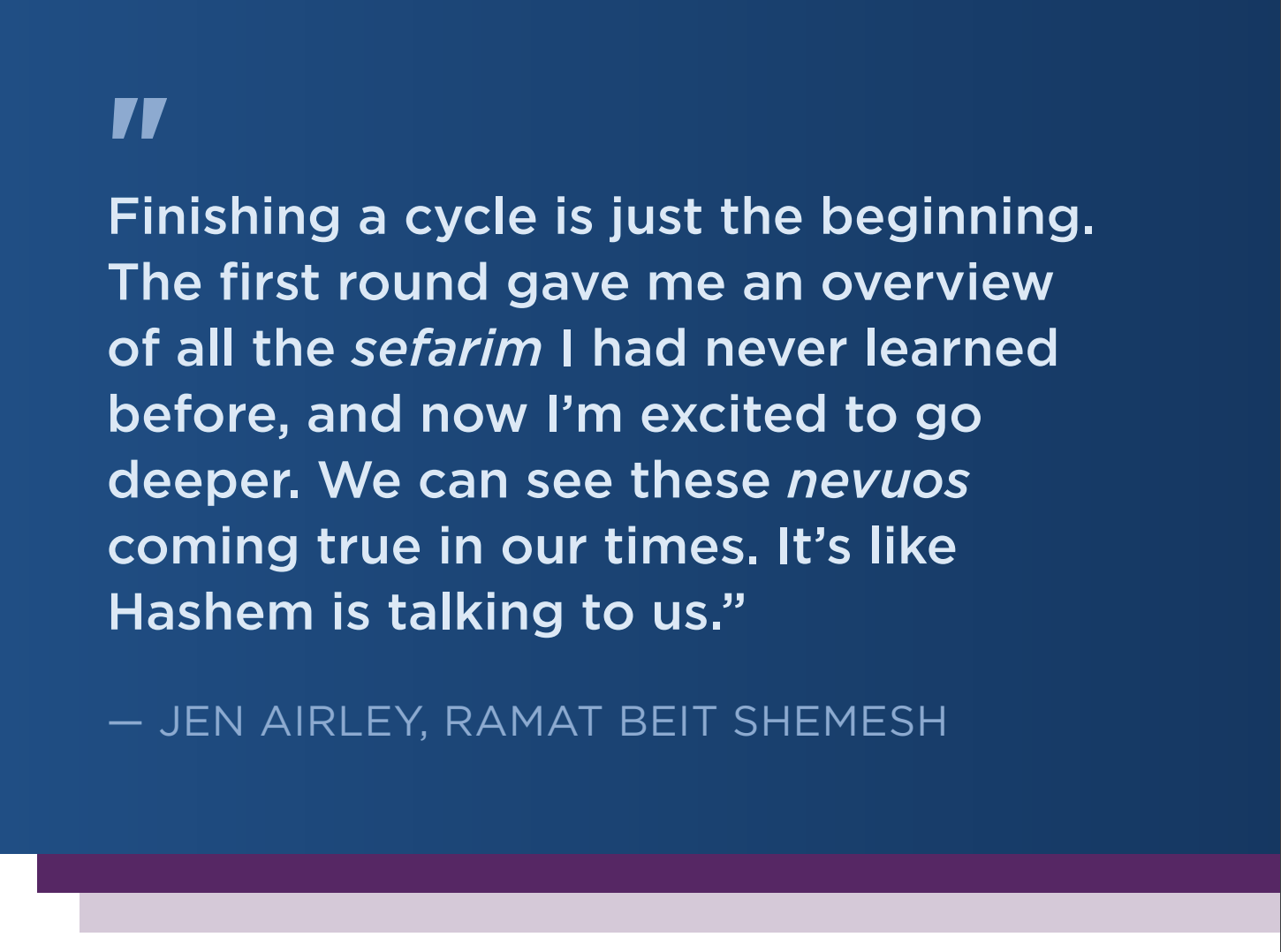
The Women's Initiative serves as a trusted resource and supportive network, helping women lead effectively, strengthen their communities and make a meaningful impact.
Mental health. In July, more than 50 women in a trio of fellowship cohorts attended the third Foundations of Community Mental Health Support seminar. Organized by the Women’s Initiative, it followed an eight-week series of sessions and small-group mentorships for rebbetzins, kallah teachers and kiruv and chinuch professionals, providing attendees with the skills to offer the necessary support in this crucial area. The seminar featured Esther Marcus, MSW, manager of the S'dot Negev Resilience Center Clinic and a survivor of the October 7th massacre, who spoke about trauma and resilience.
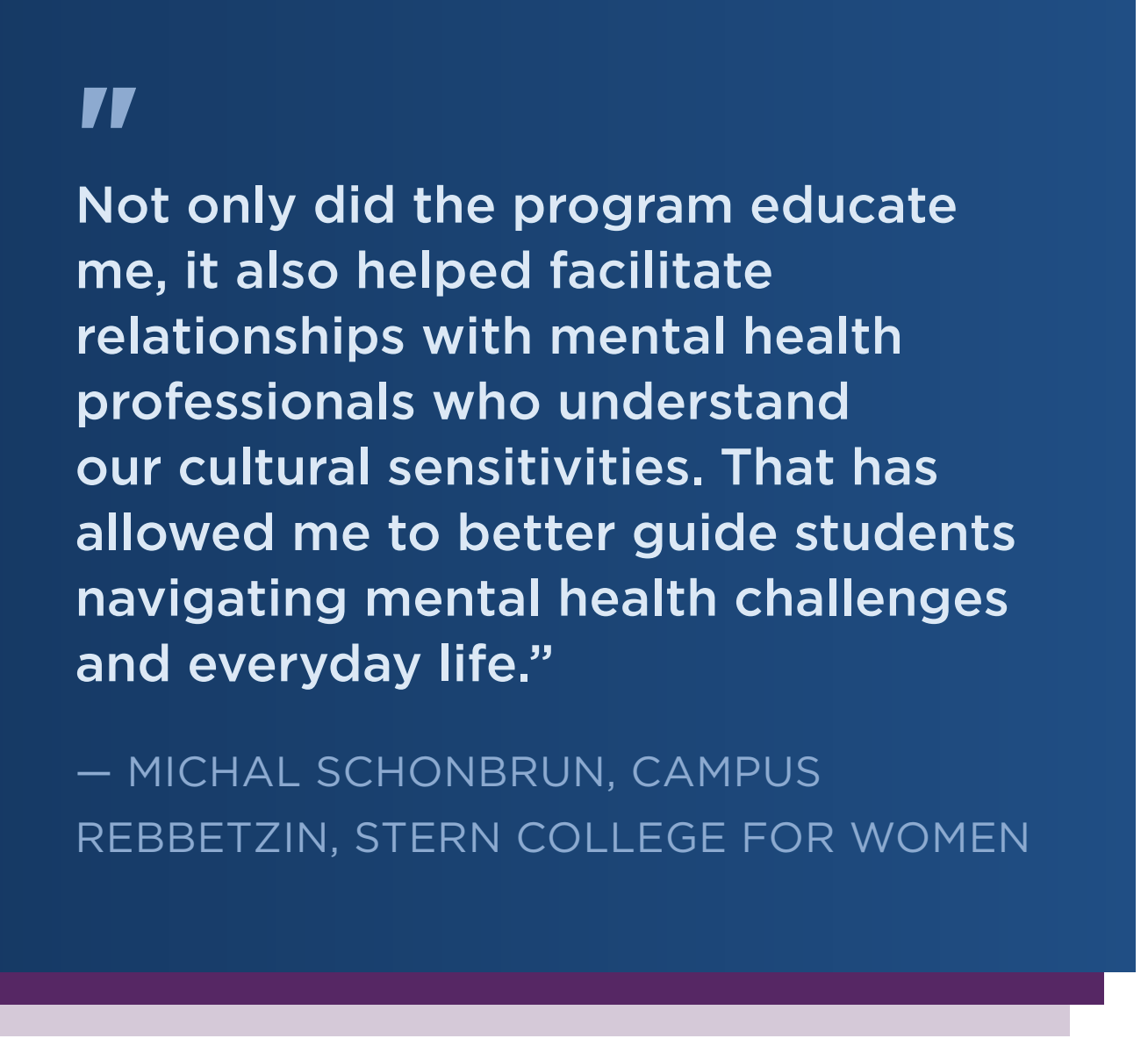
Through the course and seminar, participants gained enhanced understanding of mental health challenges and warning signs, and learned how to refer individuals to appropriate professionals. The fellowship also provides access to a network of supportive peers and communal first responders.
With the generous support of the UJA Federation of New York, the Women's Initiative launched an additional cohort in Great Neck, N.Y., tailoring the program to address the unique challenges faced by the Sephardic Mizrahi communities in the area and providing targeted support for communal leaders.
Mikvah. The Women’s Initiative invests in professional development for mikvah attendants. More than 40 attendants at mikvaot across the greater Philadelphia region attended a one-day sensitivity training focused on fostering supportive mikvah environments. The Women's Initiative also provides operations consulting and administration training programs that help ensure consistency and professionalism at mikvaot. This has included supporting communities across North America as they set up new mikvaot, navigate renovations, restructure staff and more.
COLI Chicago. Launched in May, COLI (Community Organization Leadership Initiative) Chicago is a training program for community members who lead organizations and initiatives and sit on the boards of organizations and institutions. By focusing on skill development and best practices, COLI aims to raise the bar of local organizational leadership. In essence, the cohort functions as its own micro-community: Participants stay connected, support one another and collaborate on long-term projects as they gain the knowledge and tools to lead effectively.
The Women’s Initiative provides programming, tools and support to help women connect within their community and access initiatives tailored to their needs.
Lech Knos. This program helps women across the globe organize events around video content and Tehillim resources provided by the Women’s Initiative. Launched on Ta’anit Esther — and predicated on the auspiciousness of fast days for prayer — it has had touchpoints on Shiva Asar B’Tammuz and Tzom Gedaliah. More than 200 Lech Knos gatherings have been arranged in shuls, homes, camps and schools in North America and overseas.
Israel response. We created our “Tehillim, Chizuk and Bitachon for Our Times” series to provide comfort, strength and resources during this difficult time. At particularly intense moments throughout the year, Tehillim Zoom gatherings connected thousands of women worldwide.
The Women’s Initiative also led a pair of missions to Israel, providing the
opportunity for 50 rebbetzins and female lay leaders from North America to connect with individuals, communities and organizations impacted by the war. Participants met with soldiers' families, displaced individuals, survivors and mothers of hostages to provide chizuk. Our female leaders built lasting relationships with their Israeli counterparts, continuing to offer support well beyond the mission and involving their communities in doing so as well.
